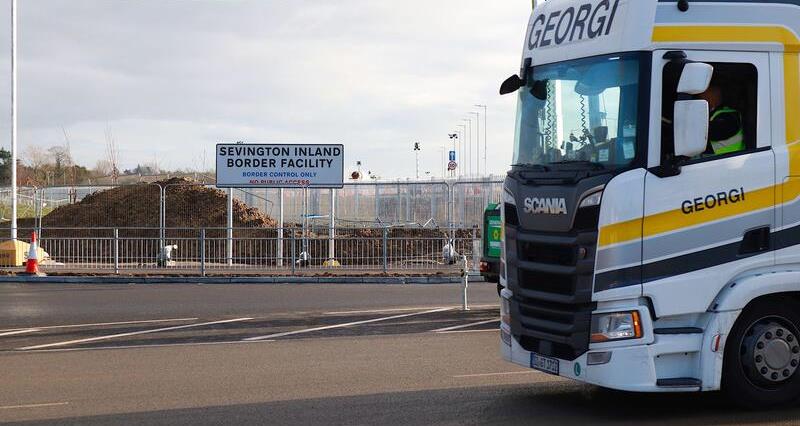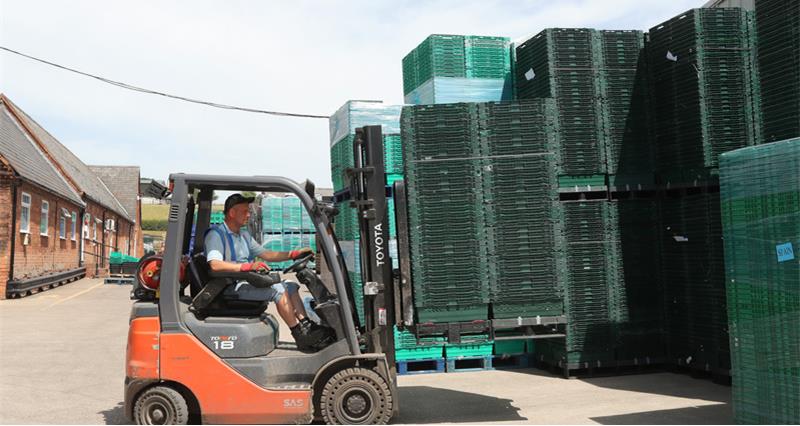The BTGA (British Tomato Growers’ Association) is calling for an assured, fast-track process for tomato seed after reporting that growers who propagate young tomato plants from seed are experiencing delays of up to six weeks at the border.
This is because of the need to re-test the tomato seeds on arrival in Britain. They are being held at the BCPs (Border Control Post) until that process is complete, which can take up to 15 working days. Postal and other delays also add to this time.
The seeds are being checked even though ‘seed of European origin’ is tested and certified as disease free before it is dispatched to Britain.
From 30 April, physical and identity checks began to apply to medium and high-risk animal products, plants and plant products entering the UK from the EU.
The new controls mark the second phase of the UK’s BTOM (Border Target Operating Model) which sets out a new risk-based approach to import checks on goods entering the UK from overseas.
The NFU has repeatedly warned of the potential for delays following the introduction of the checks. In particular, for horticulture businesses, the shift of of controls away from their businesses to border control points adds an additional risk to a highly bio-secure, ‘just-in-time’ supply chain and could result in long delays, meaning plants are damaged or destroyed.
Solutions needed quickly
Responding to the news, NFU Horticulture and Potatoes Board chair Martin Emmett said: “We have been warning of issues for grower businesses following changes to Border Control Posts for several years.
“The results of these concerns are now having real-life impacts on businesses’ ability to operate and plan ahead for next season.
"It is vital that the new government understands the extent of the issues and we work together towards achieving solutions as quickly as possible.
“This will ensure businesses can trade smoothly and continue producing fresh fruit, vegetables and plants for the nation.”
“The results of these concerns are now having real-life impacts on businesses’ ability to operate and plan ahead for next season."
NFU Horticulture and Potatoes Board chair Martin Emmett
Serious economic impact
The BTGA said in a statement: “These delays are having serious economic impacts on businesses, resulting in a delay in sowing and subsequent delivery of tomato (Solanum lycopersicum) plants to growers.
“Whilst as an industry we are working with partners such as the NFU, Defra, APHA to resolve these issues, we need our UK retail customers to support us with the timing of contract agreements to help us plan around these delays. This means for British Tomato Season 2025 we urgently need retailer programmes/contracts to be agreed with our growers by the end of September 2024.”
In response to growers’ concerns, a Defra spokesperson said: “Our border posts have the sufficient capacity needed to efficiently handle the volume of checks required, while our inspectors have undertaken extensive training to ensure goods are treated safely and with care.
“We will continue to work with and support businesses throughout this process to maintain the smooth flow of imported goods.”
Oilseed rape varieties delayed
Meanwhile the BSPB (British Society of Plant Breeders) has reported that consignments of future varieties of oilseed rape from the EU have been held and delayed at BCPs.
In a statement published last week, the BSPB said the deadline for the seeds to be ready for use in trials was 10 August.
“The trials are essential for growers to be able to access the latest and best varieties, because unless a new variety passes DUS (distinctness, uniformity and stability) and VCU (value for cultivation use), it cannot be marketed,” the BSPB explained.
The BSPB said it had been calling for Defra to change the way the process works since it was announced in March this year, otherwise UK supply chains operating in competitive markets will continue to be disadvantaged and face higher costs, it warned.



